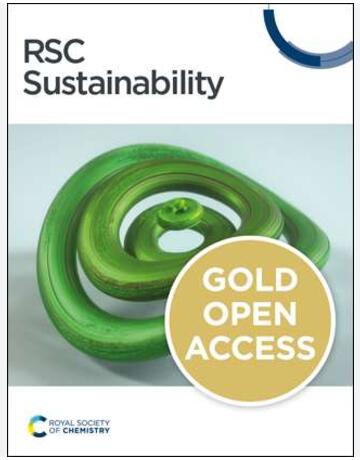南京都市圈中心城市的首位度评价与格局演变机制
IF 3.3
3区 环境科学与生态学
Q2 ENVIRONMENTAL SCIENCES
引用次数: 0
摘要
经济全球化加速了资源要素的跨区域流动,突破了传统区域行政边界的限制。城市群是带动和加速区域一体化发展的核心载体,能够促进城市功能分工与合作。本研究以南京都市圈为案例,从要素流动的角度,以经济、文化、交通联系为重点,构建城市综合一级评价指标体系。我们发现:(1)长期排名第一的南京市得分呈下降趋势,从2017年的0.956下降到2023年的0.937;(2)都市圈城市综合首位度空间结构呈现 "一核、多中心、多片区 "的网络分层发展特征。以南京为区域核心城市,以滁州(0.879)、扬州(0.915)、芜湖(0.897)为次中心城市,以其他城市为次区域节点的城镇体系结构逐步形成;(3)经济(0.166**)、文化(0.226**)、交通(0.644***)要素联系指标相互关联、相互促进,形成内部联系的统一体。本研究定量测度了南京都市圈一体化发展水平,为制定区域政策提供了参考。本文章由计算机程序翻译,如有差异,请以英文原文为准。
The Primacy Evaluation and Pattern Evolution Mechanism of the Central City in Nanjing Metropolitan Area
Economic globalisation has accelerated the cross-regional flow of resource elements and broken through the constraints of traditional regional administrative boundaries. Urban agglomerations are core carriers that drive and accelerate regional integration development and can promote the division of urban functions and cooperation. This study considers the Nanjing metropolitan area as a case study to construct a comprehensive first-degree evaluation index system for cities from a factor-flow perspective, focusing on economic, cultural, and transportation connections. We found that (1) Nanjing, which has long been ranked first, shows a downward trending score, dropping from 0.956 in 2017 to 0.937 in 2023; (2) The comprehensive first-degree spatial structure of metropolitan-area cities presents a network hierarchical development feature of “one core, multiple centres, and multiple areas”. With Nanjing as the regional core city, Chuzhou (0.879), Yangzhou (0.915), and Wuhu (0.897) as sub-centre cities, and other cities as sub-regional nodes, the urban system structure gradually forms; (3) The indicators of economic (0.166 **), cultural (0.226 **), and transportation (0.644 ***) element connections were interrelated and mutually reinforced, forming a unified entity with internal connections. This study quantitatively measured the level of integrated development in the Nanjing metropolitan area and provided a reference for formulating regional policies.
求助全文
通过发布文献求助,成功后即可免费获取论文全文。
去求助
来源期刊

Sustainability
ENVIRONMENTAL SCIENCES-ENVIRONMENTAL SCIENCES
CiteScore
6.80
自引率
20.50%
发文量
14120
审稿时长
17.72 days
期刊介绍:
Sustainability (ISSN 2071-1050) is an international and cross-disciplinary scholarly, open access journal of environmental, cultural, economic and social sustainability of human beings, which provides an advanced forum for studies related to sustainability and sustainable development. It publishes reviews, regular research papers, communications and short notes, and there is no restriction on the length of the papers. Our aim is to encourage scientists to publish their experimental and theoretical research relating to natural sciences, social sciences and humanities in as much detail as possible in order to promote scientific predictions and impact assessments of global change and development. Full experimental and methodical details must be provided so that the results can be reproduced.
 求助内容:
求助内容: 应助结果提醒方式:
应助结果提醒方式:


